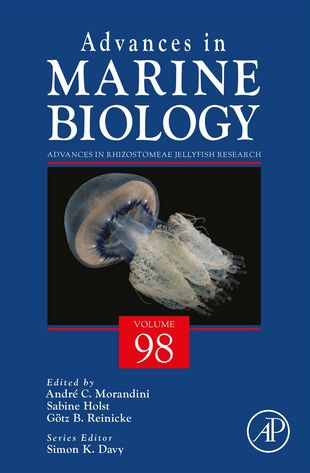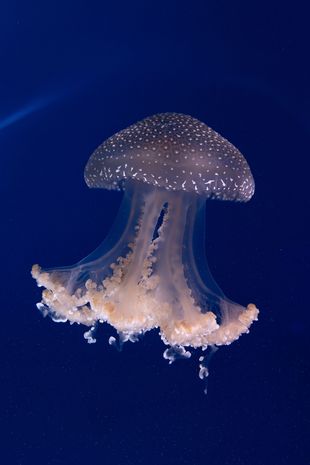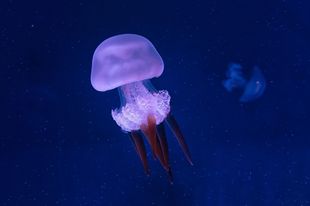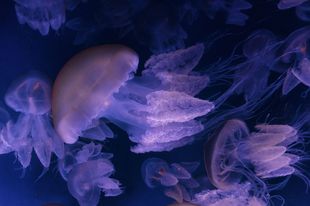New publication showcases 50 years of global jellyfish research
[09.01.2025] A new issue of the series “Advances in Marine Biology” is dedicated to the topic of worldwide research on Rhizostomeae jellyfish since 1970. The 547-page volume with contributions from 36 international experts was published in collaboration between the Ocean Museum Germany in Stralsund, Senckenberg am Meer in Hamburg and the University of São Paulo in Brazil.
Rhizostome jellyfish are among the most conspicuous organisms in coastal seas worldwide. Their sizes – sometimes over two meters in diameter – and their occasional appearance in “plagues” led to an early mention in Aristotle's “Natural History of Animals”. Since then, the Rhizostomeae group of animals has had a long history of scientific study, with the first species descriptions in the 18th century.
The current state of knowledge comprises 91 species. Their adaptability and importance in regional plankton ecosystems have recently attracted new attention, at least for some prominent species such as the immigrant Nomad jellyfish (Rhopilema nomadica) in the Mediterranean or the Japanese Nomura jellyfish (Nemopilema nomurai). Their success as predators and their role in changing food webs in the open ocean have heightened awareness of these animals and their potential economic value. One chapter in the volume examines the use of rhizostome jellyfish as food or as a source of bioactive compounds for technical, medical and biotechnological applications. “The detailed insights into the biology of these fascinating animals and their ecological and economic role make this volume a valuable resource for researchers and anyone interested in the marine environment,” says co-editor Dr. Sabine Holst.
An old manuscript by the German zoologist Max Egon Thiel (1898-1979), which summarizes the state of knowledge about rhizostome jellyfish up to around 1970, incited the now published edition on the current state of research on the subject. Thiel's unpublished work was intended to conclude a series of monographs on Discomedusae jellyfish published between 1936 and 1962 and has been preserved in the family archive of his descendants to this day. “Jellyfish experts from all over the world showed great interest in Thiel's unpublished text but also wanted an up-to-date presentation of the current state of knowledge on rhizostome jellyfish,” explains co-editor Dr. Götz B. Reinicke from the Ocean Museum Germany.
The new volume provides this broad overview of the current state of research on Rhizostomeae jellyfish, together with the historical manuscript as a digital appendix. Co-editor Prof. André Morandini summarizes: “The feedback from the international jellyfish research community acknowledges the volume as a milestone of knowledge in this field, reflecting the spirit of Thiel's work”.




